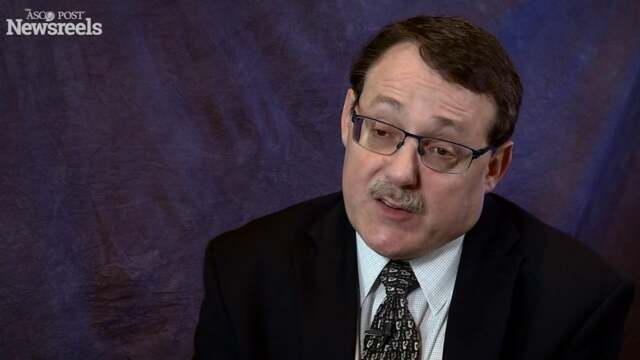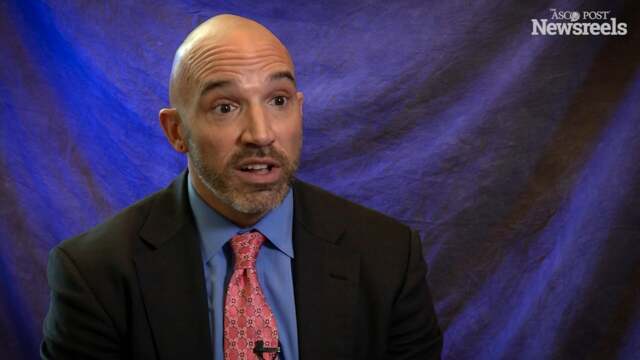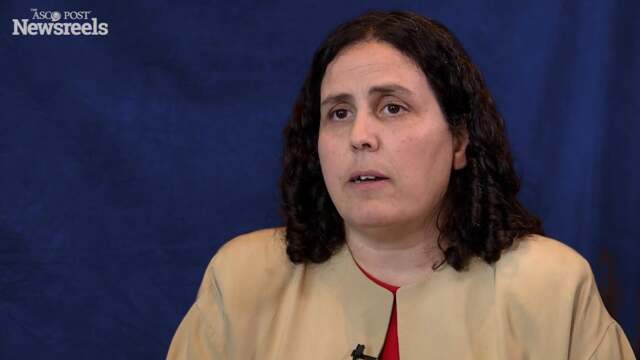Rogerio Lilenbaum, MD, on Metastatic NSCLC: Managing EGFR-Mutation–Positive Disease
2016 NCCN Annual Conference (1)
Rogerio Lilenbaum, MD, of Yale Cancer Center/Smilow Cancer Hospital, discusses the importance of tumor profiling for non–small cell lung cancer and strategies for treating EGFR-positive disease in the first-line setting.
Alan Venook, MD, of the UCSF Helen Diller Family Comprehensive Cancer Center, discusses new observations on biomarkers, the best combinations of therapies, and how to sequence them.
Jeffrey Jones, MD, MPH, of the Ohio State University Comprehensive Cancer Center, discusses the use of small molecule inhibitors in developing an individualized treatment plan for patients with CLL.
Louis Burt Nabors, MD, of the University of Alabama at Birmingham Comprehensive Cancer Center, discusses improvements in the 2016 NCCN Guidelines for glioma, anaplastic oligodendroglioma, and glioblastoma.
Douglas E. Wood, MD, of the University of Washington, discusses important new developments in early detection, the need to educate primary care physicians and patients, and the potential to save up to 15,000 lives each year.
Anne Covey, MD, of Memorial Sloan Kettering Cancer Center, discusses the role of ablation and arterial-directed therapy in the treatment of hepatocellular carcinoma.





